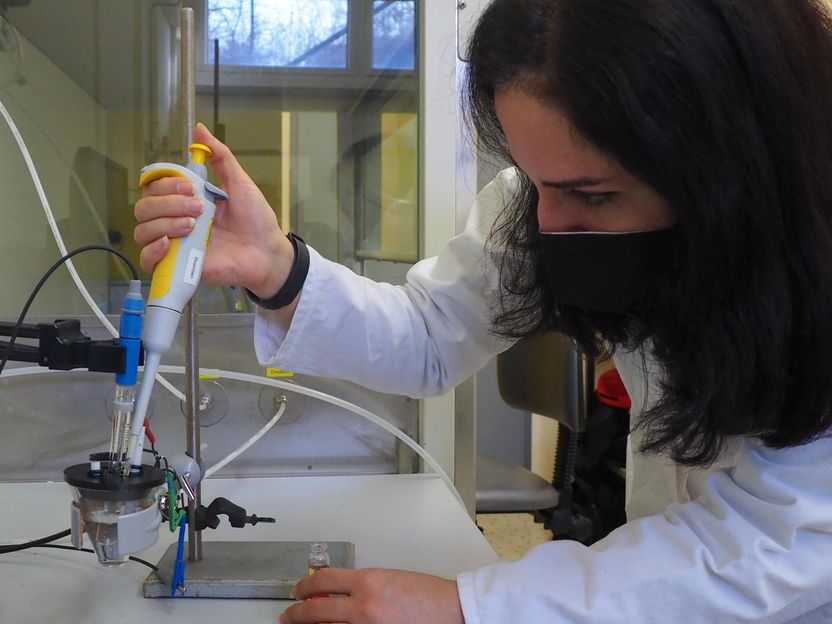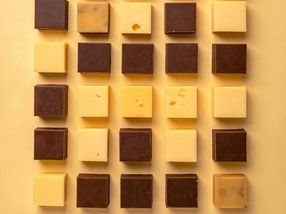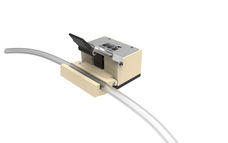Measuring glucose concentration without enzymes
Sensor of novel material an alternative for blood glucose measurement
Advertisement
An interdisciplinary team of researchers at TU Bergakademie Freiberg has developed a novel sensor from a bio-based material that enables enzyme-free measurement of glucose concentration in the blood.

Dr. Parvaneh Rahimi showing the electrode with the new sensor material.
T. Göpfert, TU Bergakademie Freiberg
Anyone suffering from diabetes cannot live without them - the test strips for measuring blood glucose levels. They contain enzymes that react with glucose in the blood. "Once used, the conventional enzyme based photometric or electrochemical measurement no longer work and the test strip is discarded," Prof. Yvonne Joseph from TU Bergakademie Freiberg explains. "Enzymes are proteins that trigger biochemical reactions. As proteins, however, they are not temperature-stable," the professor of electronic and sensor materials continues.
Together with her team, she set out to find an alternative sensor material. She found what she was looking for in the laboratory of her colleague, Prof. Hermann Ehrlich. The biomimetics expert has been developing novel bio-based materials for several years. A bath sponge coated with the mineral atacamite was considered for glucose measurement. "The unique structure of the microporous 3D sponge framework efficiently promotes the activity of atacamite as an electrocatalyst. Therefore, glucose molecules can diffuse into the porous 3D network, which facilitates electron transfer between glucose and atacamite and leads to the glucose sensor's powerful properties", says research associate Dr. Parvaneh Rahimi.
She crushed the sensor material from the sponge and added carbon as an electrical conductor as well as paraffin oil as a binder. Dr. Parvaneh Rahimi then applied the homogeneous paste to a Teflon holder that served as the electrode body. Upon immersion of the electrode in a glucose solution, the sugar molecules diffused into the porous, coated sponge. They reacted on its surface, resulting in a measurable electric current.
Potential for enzyme-free and reusable test strips for diabetes management
The researchers tested the novel measurement method in two steps: with a glucose-containing solution and with three different blood samples from anonymous donors at a Freiberg doctor's practice. "Both tests revealed stable measurement results over the period of one month. As a sensor, the material would therefore be reusable," says Prof. Yvonne Joseph. Before it can be used in test strips for diabetes management, the novel sensor material would have to undergo further tests and clinical studies.
Background: Sensor materials from cultured sponges
Researchers at TU Bergakademie Freiberg developed the material sponging atacamite from a cultivated marine sponge. When the fibers of the sponge react with a copper-containing ammonia solution, the mineral atacamite is formed. This mineral, which is very rare in nature, attaches itself so strongly to the sponge fibers that a robust material is formed.
No experiments were carried out on living organisms to research the novel material made from sponges cultivated in Tunisia. All the requirements of the Nagoya Protocol on Access to Genetic Resources and Fair and Equitable Sharing of Benefits were met in the breeding and purchase of the sponges used.




























































